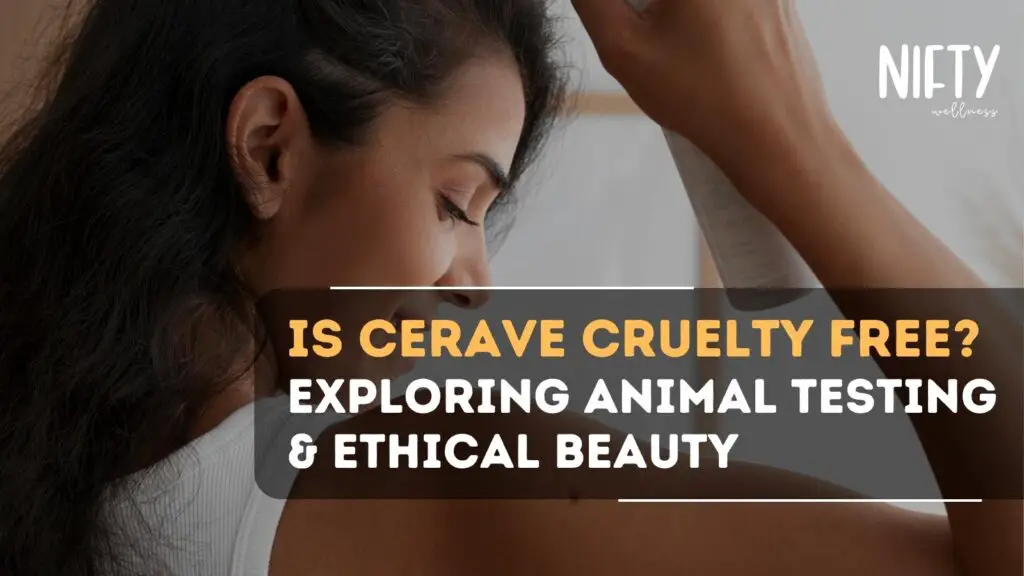Recently, the beauty industry has shown a growing inclination towards ethical practices. As more and more consumers demand products that align with their values, especially those that are cruelty-free, ethical & safe, more brands are also vouching for it and offering the same.
Cruelty-free beauty means products that haven’t been tested on animals. If you believe this is just another passing trend, you are mistaken. It is not! This commitment reflects our growing awareness of animal welfare and ethical choices.
With the growing demand for cruelty-free and vegan products, Many brands have started marketing their labels. But how can you distinguish whether a brand genuinely adheres to cruelty-free and vegan principles? And more specifically, is CeraVe cruelty free? Let us dig deeper and find the answers!
Unveiling the Difference: Cruelty-Free vs Vegan
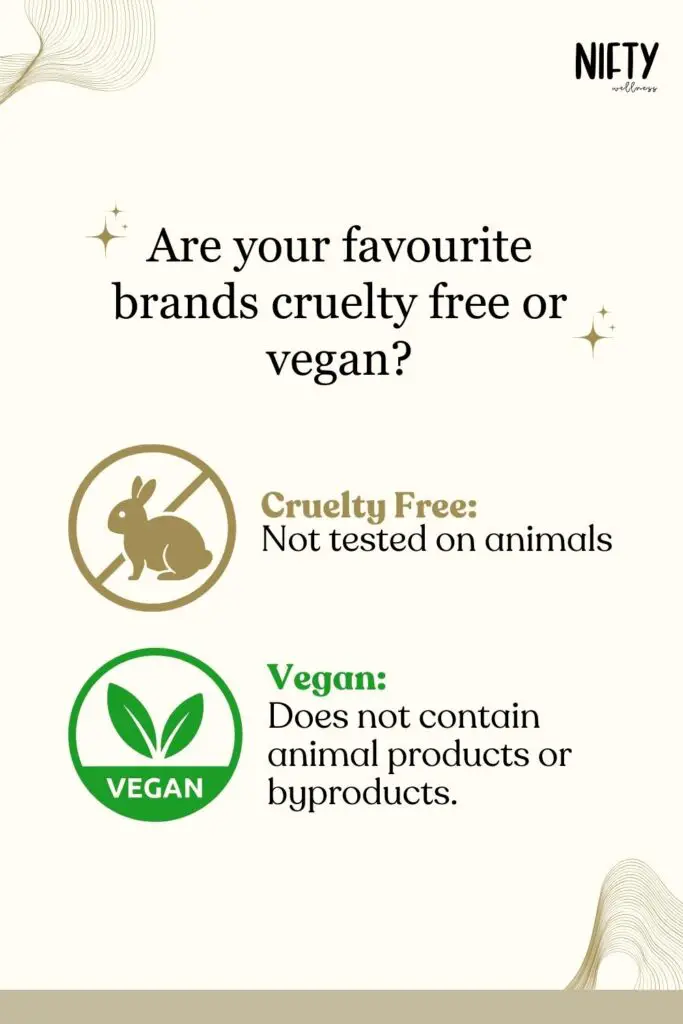
Before we delve into CeraVe’s ethical practices, let’s demystify the distinction between cruelty-free and vegan. Cruelty-free signifies that products have not undergone animal testing, while vegan products do not contain any animal-derived ingredients or byproducts. It is essential to notice that while some companies claim to be vegan and cruelty-free, some focus on either one of these aspects only.
To understand CeraVe’s ethical commitment, including its sustainability, cleanliness, toxicity, fragrance, and paraben status, we must explore multiple facets of this beauty brand!
Read our blog The Ultimate Comparison: CeraVe vs Cetaphil – Unveiling the Best Skincare Choice. Let’s dive in the comparison and give your skin the love it deserves.
Is CeraVe Cruelty Free?
Some of the most crucial questions that mark the beginning of our quest are- Is CeraVe a cruelty free brand? Does CeraVe test on animals? The answer to this, unfortunately, is a no! CeraVe does not currently hold a cruelty-free status at present. There are concerns that CeraVe may engage in animal testing, either through their procedures, their suppliers, or third-party entities. To truly understand this, it is essential to know the stance of CeraVe’s parent company. Now you must be wondering, who owns CeraVe? Read on to find the answer!
CeraVe, L’Oréal & the Cruelty-Free Dilemma
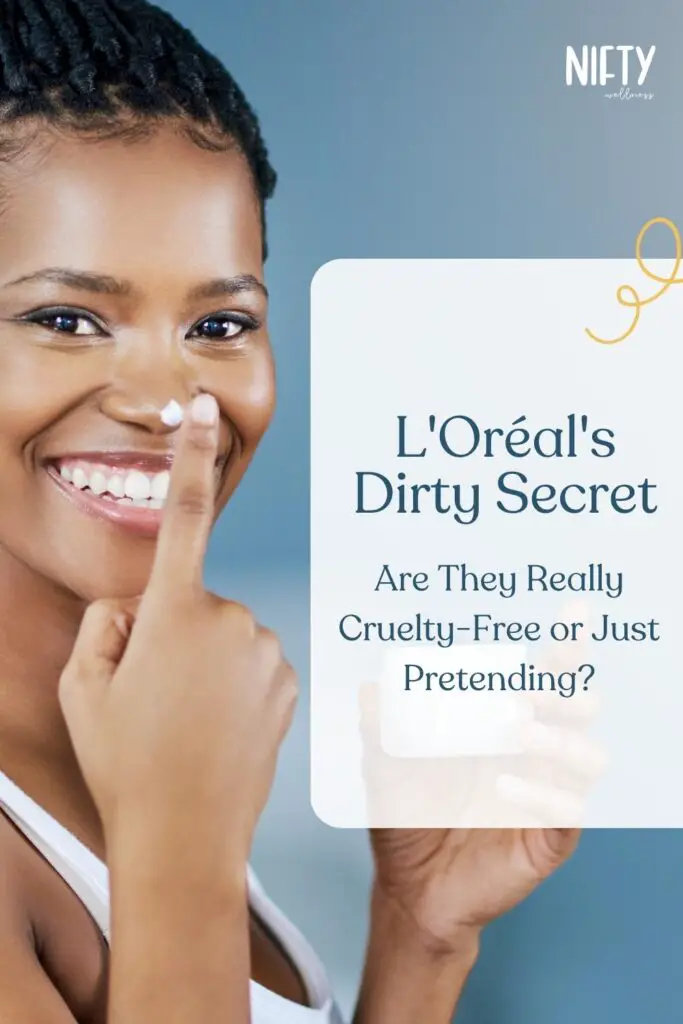
When talking about CeraVe, it is also essential to talk about L’Oréal. Why, you ask? Because CeraVe is a part of this well-known cosmetics conglomerate. So now questions arise: Is L’Oreal cruelty free? Does Loreal test on animals? Well, it claims to be animal-friendly, but here is the catch!
While L’Oréal claims it does not conduct animal testing, it is only half-truth. This might give consumers a false satisfaction about L’Oréal’s cruelty free practices. But the truth is that L’Oréal collaborates with and financially supports third-party entities that conduct animal testing on its behalf. This takes the CeraVe parent company- L’Oréal, out of the fold of cruelty-free and ethical brands. Consequently, CeraVe, under L’Oréal’s umbrella, cannot be deemed cruelty-free.
CeraVe in China: A Crucial Insight
Regarding the cruelty-free certificate, one thing that must be considered is the brand’s presence in China. CeraVe products are available in China, where animal testing is legally mandated for cosmetics. This imperative means that brands selling in China are compelled to subject their products to animal testing, rendering them non-cruelty-free. These facts testify to the truth and CeraVe’s lack of cruelty-free certification.
Cruelty-Free Alternatives: Compassionate Choices
Do you not wish to use beauty products that are good for your skin and not heavy on your soul? If you answer yes, be glad to know that there are many cruelty free alternatives to CeraVe.
Renowned brands and new labels have chosen to stick to cruelty-free practices, making choosing products that suit your skin and ethical values easier. Some noteworthy cruelty-free skincare brands include Skinfix, Derma E, and Fenty Skin. For makeup enthusiasts, options like Kosas, MERIT, and Rose Inc. offer cruelty free alternatives.
Is CeraVe Vegan?
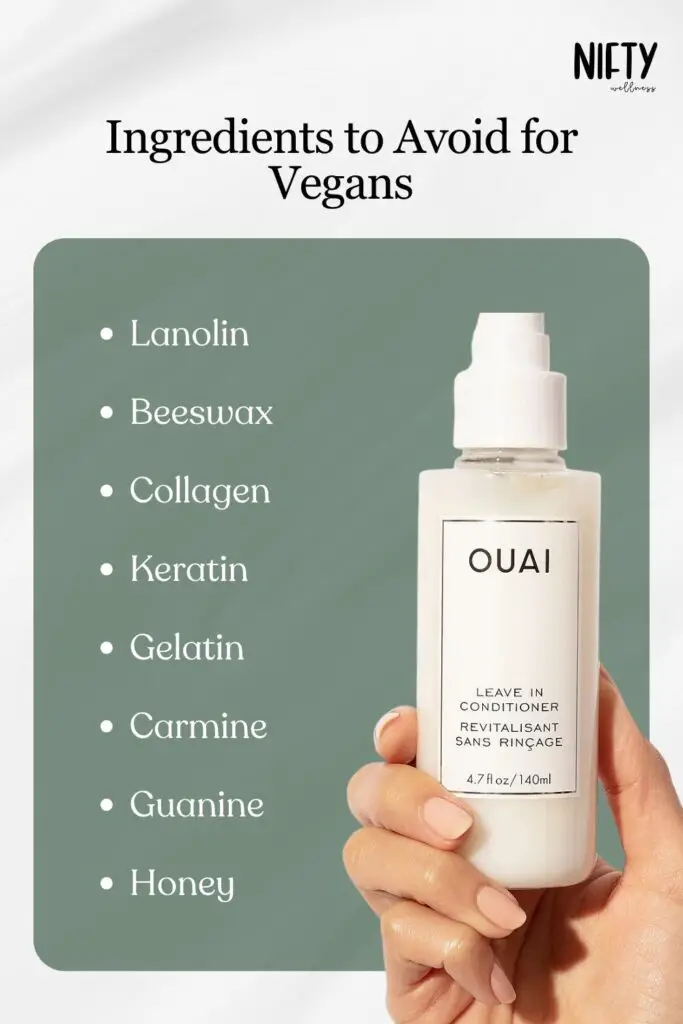
Now, let’s navigate CeraVe’s vegan status. While CeraVe may offer select vegan products, it does not qualify as a 100% vegan brand. Some CeraVe products still incorporate animal-derived ingredients, which fall short of vegan standards. So, if you are wondering, “Is CeraVe gluten free?” Please check the product label before using it.
Here are some frequently encountered animal-derived ingredients to steer clear of if you wish to go vegan:
- Lanolin
- Beeswax
- Collagen
- Keratin
- Gelatin
- Carmine
- Guanine
- Honey
- Silk
- Squalene
- Animal fats/oils
Always remember that multiple vegan alternatives can be used instead of these ingredients. For example, Squalene can be plant-derived from sources like olives, wheat germ, or amaranth.
Vegan Ingredient Substitutes
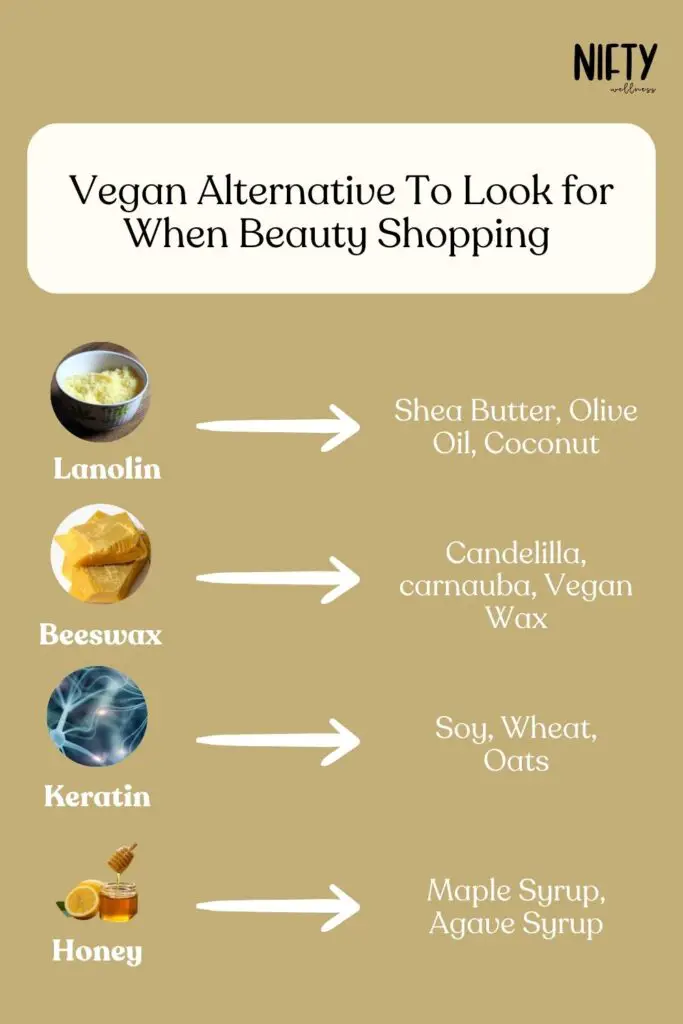
Now that you know which ingredients to skip, here is a list of alternative ingredients that can be used instead. For example, collagen can be sourced from seaweed and algae, and carmine can be derived from vegetable sources such as beetroot and carrots. Vegetable oils like shea butter, coconut, and olive oil can fulfill Lanolin’s functions. Beeswax can be replaced with plant-based waxes such as candelilla, carnauba, or vegan wax.
Instead of Keratin, one can choose plant proteins like soy, wheat, and oats/ Similarly, Gelatin can be swapped with agar agar, carrageenan, or guar gum. You can substitute guanine with synthetic mica or bismuth oxychloride. Likewise, honey can also be switched with vegan alternatives like maple syrup or agave syrup. Using plant-based fabrics like bamboo and hemp can also eliminate the use of Silk, and plant-based oils like coconut oil, olive oil, or avocado oil can replace animal fat/oil.
Vegan Brands To Look Out For!
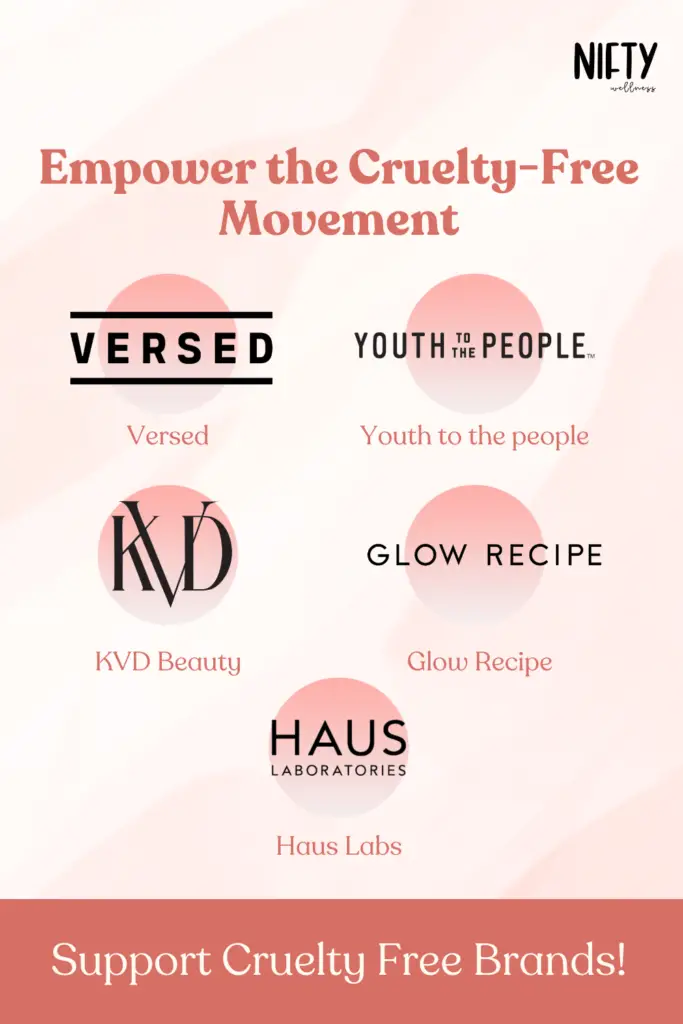
Those seeking entirely vegan beauty products have plenty of options to explore. Some vegan skincare brands include Versed, Youth To The People, and Glow Recipe. If makeup is your passion, consider brands like KVD Beauty, Haus Labs, and LYS Beauty. Besides following vegan principles, these brands also prioritize cleanliness and ethical practices.
Looking for the best skincare regimen? Check out our blog Qv Vs Cetaphil: Differences, Similarities & Which One Is Right For You. Uncover insights into what makes each product unique and find the perfect fit for your skin needs.
CeraVe’s Cleanliness: An In-Depth Look
The term “clean beauty” lacks strict regulation, allowing brands to label their products as clean, green, or natural. Clean beauty products are formulated without ingredients proven or suspected to harm human health or the environment. To define clean beauty more precisely, it comprises products consciously crafted without confirmed or suspected toxic ingredients. So, what is CeraVe in this regard? Is CeraVe toxic? Or Is CeraVe safe for regular use? Is CeraVe fragrance free?
While CeraVe does offer fragrance-free, paraben-free, and mostly non-comedogenic products, it cannot be categorized as a clean beauty brand. Another question pops out now: Is CeraVe hypoallergenic? This answer, too, belongs to the grey area. While some of its products are completely hypoallergenic, others are not. Please check the CeraVe ingredients list of the product you intend to use and do a patch test before trying anything new on your skin.
Now, a lot of people must wonder, Is CeraVe good? It is important to note that clean beauty does not inherently equate to vegan or cruelty-free status. If you are curious to know, why is CeraVe banned in Europe? It is also because of the presence of certain toxic ingredients that were found in its products. While these ingredients are banned in Europe, they are not restricted to use in the USA.
Ingredients to Avoid in Clean Beauty
Clean beauty involves avoiding certain ingredients that can harm people, animals, and the environment. One must avoid harmful ingredients: Sulfates, silicones, phthalates, parabens, pesticides, petroleum derivatives, artificial colouring, and synthetic fragrances. Avoiding any beauty product with these ingredients is best as it is unsafe for human skin.
Fragrance and Parabens in CeraVe Products
CeraVe is committed to synthetic and fragrance-free formulations. If you are trying to find out Is CeraVe a good face moisturizer? Know that it is counted as one of the best moisturizers in the world for dry skin.
That said, one must remember that some CeraVe products may contain parabens. While CeraVe offers paraben-free options, checking the product labels for ingredient details before buying it is crucial.
Sustainability & Ethical Beauty
Even though the main point of discussion here is cruelty-free and vegan beauty brands, it is also essential to talk about sustainability. Yet another dimension in ethical beauty, sustainability is something every woke consumer must look for in every brand, be it beauty, skincare, or beyond. Currently, CeraVe has yet to publicize a solid commitment to sustainability or share specific sustainability projects on its website.
Sustainable Beauty: Alternatives To Keep An Eye For!
For consumers who prioritize sustainability, various clean skincare and makeup brands offer eco-conscious options. Reflecting their commitment to ethical and eco-friendly practices, many brands have incorporated sustainability as their practice. Brands like Rhode Skin, ILIA Beauty, The Inkey List, and Supergoop are great examples of sustainable and clean beauty brands.
Making Informed Choices!
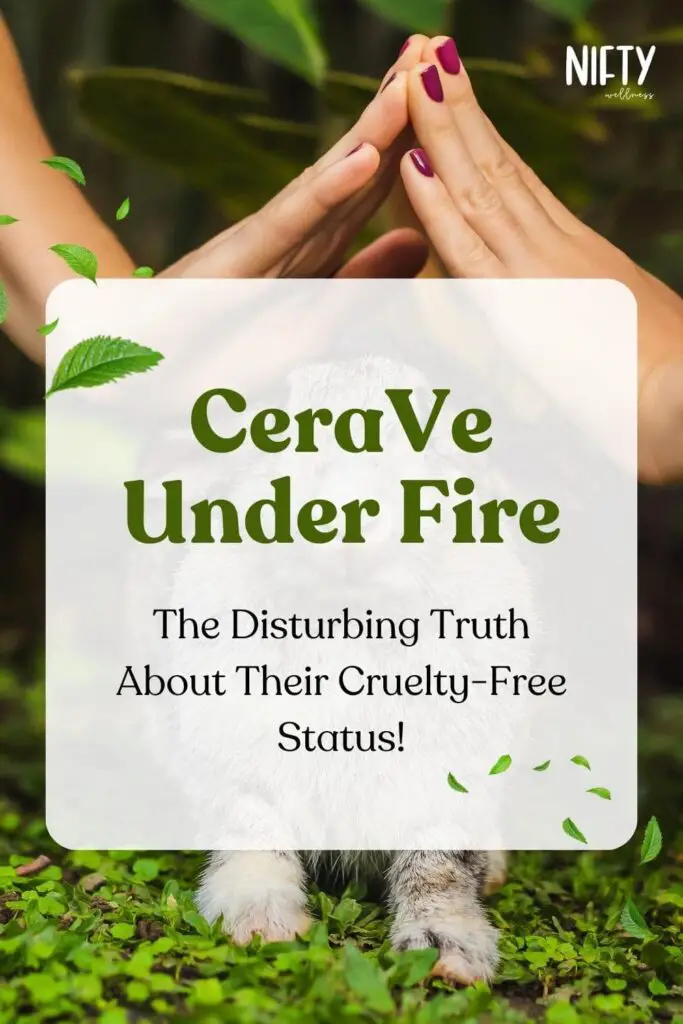
With this in-depth research, whether CeraVe is cruelty-free and vegan now stands answered. CeraVe, under its parent company L’Oréal, does not hold cruelty-free certification due to concerns regarding animal testing. While CeraVe offers some vegan products, it does not classify as a fully vegan brand due to animal-derived ingredients in specific formulations. Additionally, CeraVe does not bear the label of a clean beauty brand but provides fragrance-free and paraben-free options. So the questions are, Is CeraVe good for face? Is CeraVe good for skin? It really varies based on your skin type and specific concerns.
What we need to understand is our power as consumers. The choices we make have an undeniable influence in shaping the ethics of the beauty industry. If we start supporting brands that align with our values, we give way to a cleaner, ethical, and more conscious beauty landscape. The choice between CeraVe or other cruelty-free and vegan alternatives remains yours. Remember that the choices we make hold the power to steer the industry toward a more ethical future.
Frequently Asked Questions (FAQs)
Does CeraVe have the Leaping Bunny certification?
No, CeraVe does not have Leaping Bunny certification, which signifies that they do not meet the strict criteria for being cruelty-free. Leaping Bunny is a well-known cruelty-free certification for those who do not know. The absence of this certification points out CeraVe’s non-commitment to cruelty-free practices in their product development and testing processes.
Can a brand be cruelty-free if its ingredients are tested on animals by suppliers?
No, a brand cannot be considered cruelty-free if its suppliers test its ingredients on animals. To be cruelty-free, a brand must ensure that all aspects of its product, including ingredients, are not tested on animals at any production stage. Using animal-tested ingredients, even by suppliers, goes against cruelty-free principles and practices.
Does CeraVe disclose its animal testing policy?
Yes, CeraVe discloses its animal testing policy on its official website. Officially, they state that they do not test their products on animals. But, it is essential to note that CeraVe is owned by L’Oréal, a company that agrees to third-party animal testing. This makes it challenging to understand CeraVe’s stance on following cruelty-free practices. Always check for comprehensive details on a brand’s animal testing policy to make an informed choice.
Is transparency essential for a brand’s cruelty-free claim?
Yes, transparency is crucial for a brand’s cruelty-free claim. A genuinely cruelty-free brand should be open and honest about its practices, ingredients, and policies related to animal testing. If a brand is dishonest or tries to hide information, it can make people doubt if they are genuinely kind to animals. So, being open and transparent helps us know if a brand is good for animals.
How can consumers support cruelty-free brands?
To support cruelty-free brands, you can:
1. Contribute to organizations dedicated to ending animal testing.
2. Choose products with the Leaping Bunny logo or use the Leaping Bunny barcode scanner.
3. Opt for cruelty-free household and cleaning products.
4. Avoid companies that use animal research.
5. Spread knowledge about cruelty-free choices and animal welfare organizations.
